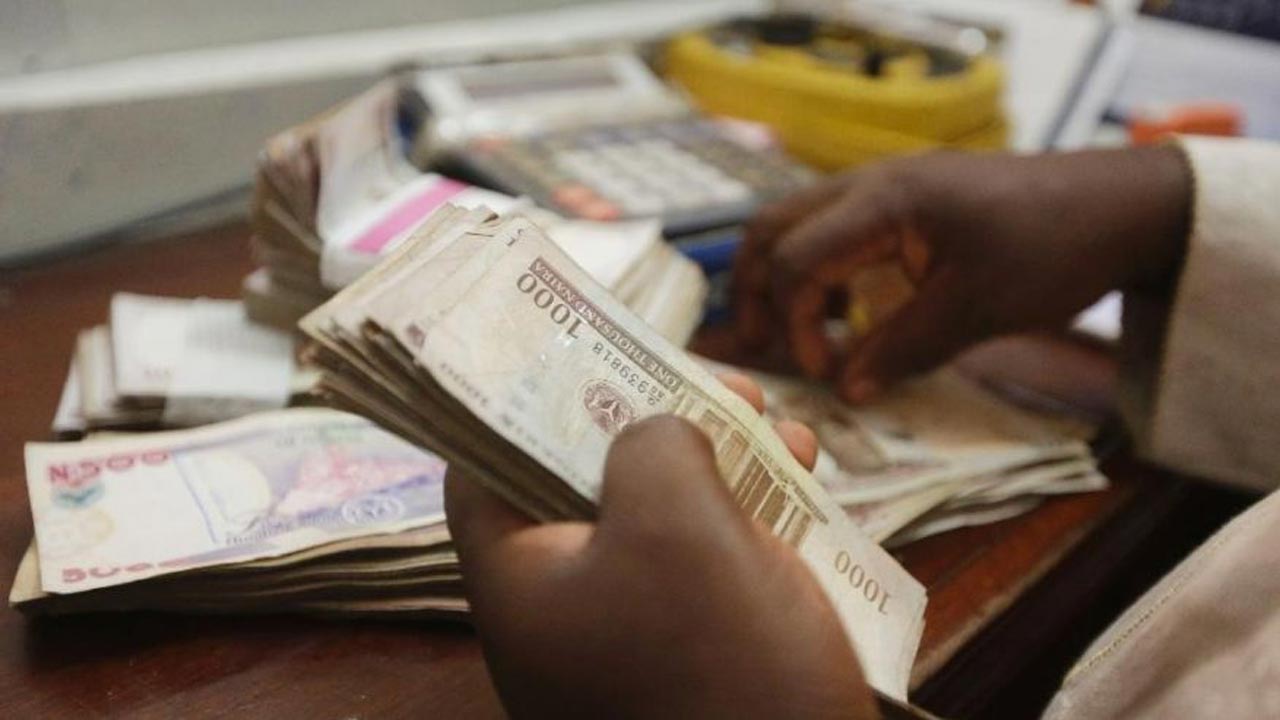The exchange rate between the naira and dollar plunged to N888/$1 on Binance, a crypto platform.
This depreciation comes despite a temporary convergence achieved through the Central Bank of Nigeria’s (CBN) recent actions.
Currency restrictions have previously been identified as a major hurdle for foreign investors looking to invest in Nigeria, the largest oil producer in Africa.
While the CBN’s decision to ease the currency peg was intended to address this issue, it has not been successful in meeting the demand for dollars.
Consequently, businesses have resorted to informal sources for acquiring foreign exchange, undermining the CBN’s efforts to narrow the gap between official and black-market rates.
READ ALSO: Naira exchange rate gap widens in official, black market
Initially, the CBN had planned to allow free trade until the currency reached market-relevant levels. However, concerns about potential inflation resulting from depreciating exchange rates have prompted market interventions to prevent substantial currency losses.
As a result, the naira’s devaluation by N98, which occurred yesterday, has reopened the gap with the official rate, further exacerbating the situation.
Market experts had anticipated that the harmonization of multiple exchange rates would positively impact the federal government’s budget and reduce the arbitrage gap between the official and parallel market rates. Unfortunately, this has not been the case.
A recent Reuters poll suggests that the CBN is likely to raise interest rates shortly to support the devaluation of the naira, to achieve a healthier trade balance.
While some emerging economies have started reversing course by reducing interest rates, Nigeria, after years of unorthodox policies, may need to implement significant tightening measures to revive its economy.
It is expected that the Central Bank of Nigeria will increase rates by 100 basis points to 19.50% on Tuesday. Some forecasters even predict a doubling of rate hikes.
This move follows a series of interest rate hikes by 700 basis points since early last year, as the CBN sought to combat double-digit inflation, which reached 22.79% year-on-year in June.
The recent devaluation of the naira took place shortly after President Bola Tinubu suspended the central bank governor, who was heavily criticized for his management of the exchange rate.
Experts emphasize that the most significant economic impact will arise from improving investors’ access to foreign exchange and reintegrating Nigeria into the global investment landscape.

 Entertainment5 days ago
Entertainment5 days ago
 Health1 week ago
Health1 week ago
 Health4 days ago
Health4 days ago
 Football1 week ago
Football1 week ago
 Football1 week ago
Football1 week ago
 Crime4 days ago
Crime4 days ago
 Education6 days ago
Education6 days ago
 Crime1 week ago
Crime1 week ago

